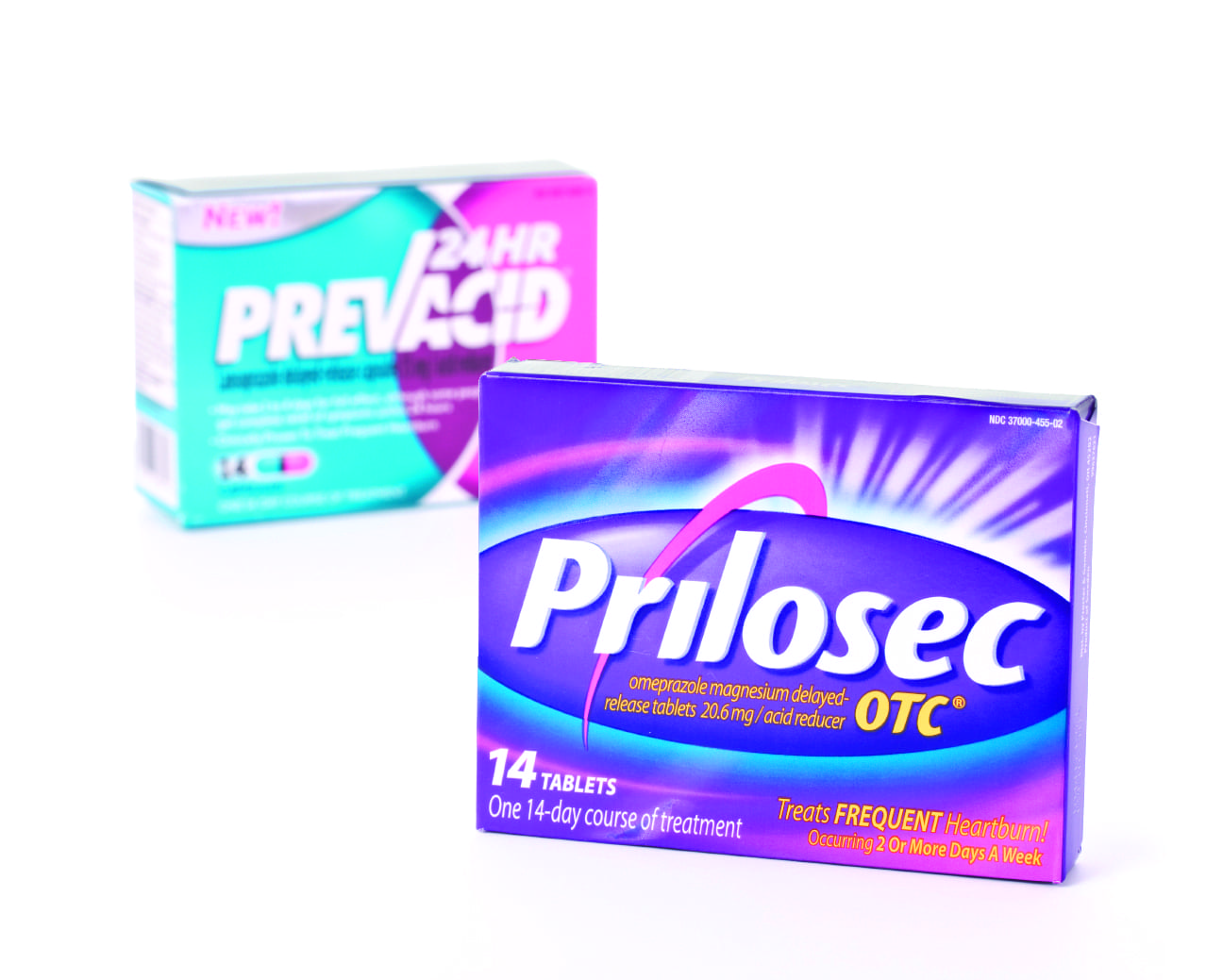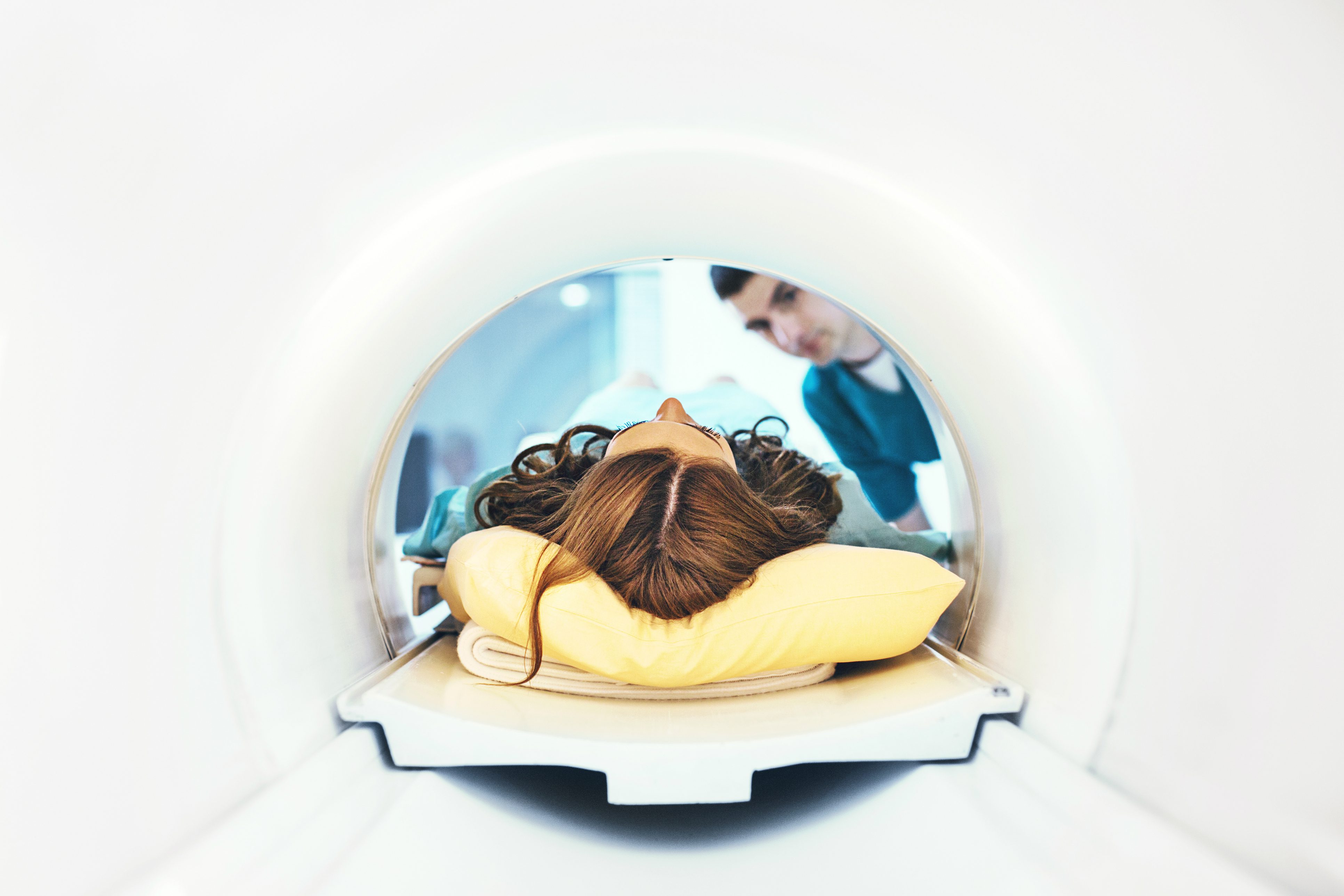Are you burning up on the inside and just can’t beat the heat? It might be time to learn more about the signs and symptoms of heartburn.
By Claire Henley
Is my heart really burning?



CHI Memorial Family Practice Associates
Contrary to its name, heartburn is not a condition in which the heart “burns.” In fact, heartburn has nothing to do with the heart. It’s simply a symptom characterized by a burning sensation in the chest, generally behind the breastbone.
So what is actually going on to kindle that fiery feeling in your chest? Heartburn ignites when stomach acid backs up into the esophagus—the tube that carries food and liquid from your mouth to your stomach. If you suffer from heartburn, you’re not alone. According to the American College of Gastroenterology, an estimated one in five Americans suffers from heartburn at least once a month. Some studies have suggested that more than one in 20 Americans experiences heartburn symptoms each day.
Recognizing the “Blaze”
Stephanie Johnson is a family nurse practitioner with CHI Memorial Family Practice Associates. She says that most people suffer from heartburn after eating. It also commonly affects people at night, as symptoms typically worsen when you bend over or lie down.
The burning, gnawing sensation can last anywhere from a few minutes to a few hours, and it can flicker its way up into the neck and throat. It may also bring with it the taste of hot, sour, acidic, or salty fluids in the back of the mouth, or the uncomfortable feeling of food being stuck in the chest or throat.
What’s causing it?
We know that heartburn ignites when stomach acid trails up into the esophagus and remains there for too long, but how does stomach acid get into the esophagus in the first place? The lower esophageal sphincter (LES) is the band of muscle around the bottom of the esophagus that functions to keep acid in the stomach. When you swallow, the LES relaxes to create an opening for food and liquid to enter the stomach.
Once food and liquid pass through the LES, the muscle tightens back up to close the opening. However, if the LES does not retighten—whether because the muscle is weak or relaxes abnormally — stomach acid can get through the opening and flow backwards up into the esophagus. This process is called acid reflux, and it is the leading cause of heartburn.Dr. Steven Kessler, a gastroenterologist with Academic Gastroenterology at Erlanger Health System, says the words “acid reflux” and “heartburn” are sometimes used interchangeably. However, they aren’t exactly the same thing.
“Acid reflux notes the presence of acid coming up from the stomach into the esophagus, whereas heartburn is one of the symptoms of acid reflux,” he says.
More Than “Every Once in a While”



If your heartburn symptoms cloud your day two or more times a week, you should consult your doctor. Frequent or severe heartburn may be due to a more serious condition called gastroesophageal reflux disease (GERD), also referred to as acid reflux disease.
The symptoms of GERD are harsher than those of mild to moderate heartburn. These may include heartburn that leads to vomiting, trouble swallowing, hoarseness, and wheezing.Dr. Nathan E. Hartgrove, an osteopathic physician with Parkridge Medical Group – Diagnostic Center, says that sometimes GERD can coincide with a chronic cough. “People don’t usually correlate coughing with acid reflux, but it should be taken into consideration for anyone with a chronic problem.” If you endure any of these symptoms alongside your heartburn, make an appointment today. GERD is a more serious condition than the occasional heartburn and should not be ignored. Think of it like a tiny burning match that, if left unattended, has the power to set a forest on fire. If left untreated, GERD can lead to a wildfire of issues ranging from inflammation and narrowing of the esophagus to even cancer.
“It’s common for people to live with the condition, thinking there is nothing they can do,” says Dr. Hartgrove. “Unfortunately, there are side effects to untreated GERD. Over time, it can change the cells in your esophagus and predispose you for esophageal cancer.”
How does heartburn ignite?
Most often, heartburn is provoked by eating and drinking habits. For example, eating within two hours before bedtime may trigger heartburn, as well as eating foods like onions, chocolate, citrus fruits, and garlic. Fatty foods, spicy foods, and tomato-based foods (like ketchup) also contribute to the burning pain inside, along with drinking alcohol, citrus juices, and caffeinated and carbonated beverages.
Other factors that can activate heartburn are smoking and being overweight. “The rise in obesity has a pretty direct correlation to an increase in cases of acid reflux,” says Dr. Hartgrove. This is because extra weight can increase pressure on the stomach and cause contents to go into the esophagus.
Hiatal hernias may also lead to heartburn. A hiatal hernia occurs when part of the stomach pushes up through an opening in the diaphragm (hiatus) into the chest region. “When there is a hiatal hernia, the lower esophageal sphincter muscle loses the support of the diaphragm, which makes it easier for acid to back up into the esophagus,” explains Dr. Kessler.
Beat the Heat



Parkridge Medical Group – Diagnostic Center
Several solutions and treatments exist to help you manage your heartburn. For moderate heartburn, begin with simple adjustments to your lifestyle habits, like:
Avoiding trigger foods and drinks. Johnson says this includes anything spicy, fried, or fatty. “You’ll also want to steer clear of tomato products, citrus fruits and juices, peppermint, chocolate, onions, carbonated drinks, alcohol, coffee, and other caffeinated drinks,” she says.
Eating mindfully. Eat slowly, and don’t overeat. Pay close attention to portion sizes, and focus on healthy foods that are high in volume, yet low in calories like vegetables and fruit.
Timing your meals. Avoid exercising just after eating, and don’t eat meals late at night or before bed. As a general rule, refrain from filling your stomach shortly before you lay down.
Quitting smoking. Smoking weakens the lower esophageal sphincter, predisposing you to acid reflux.
Losing weight. “Weight loss of as little as 10 to 15 pounds can alleviate symptoms by decreasing pressure on the stomach,” Johnson says.
Propping up your bed. Dr. Hartgrove suggests raising the head of your bed with a couple of wooden boards. Aim to elevate it at least 6 to 8 inches.
If GERD has damaged the lining of your esophagus, these healthy lifestyle changes can help it to heal almost like a wound heals.
“By controlling what’s causing the reflux, you can keep it from progressing,” Dr. Hartgrove says. “The people who are most successful in finding relief are usually the people who make overall lifestyle changes.”
Over-the-Counter Options
If you still suffer from heartburn after trying various lifestyle modifications, you can try over-the-counter medications such as antacids, which work to neutralize stomach acid. Examples of antacids you can purchase are Tums, Maalox, Mylanta, and Riopan. “These have a rapid, but short-lasting effect,” says Dr. Kessler. Be careful not to overuse these, however, as doing so can cause diarrhea or constipation.
Those looking for something stronger may try H2 blockers. These alleviate heartburn by reducing stomach acid, and many can be purchased without a prescription. Pepcid, Tagamet, and Zantac are examples of different H2 blockers on the market.
Over-the-counter proton pump
inhibitors – like Prilosec, Nexium, and Prevacid – are other stronger options. These function in a similar way as H2 blockers by decreasing stomach acid. Talk to your doctor to learn what medicine will help extinguish your heartburn.
If lifestyle changes and over-the-counter medications do not soothe your heartburn, then consult with your doctor. Your doctor may prescribe a different medication and run certain tests like an X-ray, an esophageal pH test, or endoscopy to check for things like ulcers, acid in the esophagus, and other conditions.
Learn More and Take Control
Whether your heartburn is occasional and moderate or frequent and severe, you don’t have to let it burn you up, especially since there are many ways to put your heartburn at ease. Get on the road to relief from your heartburn today. A good place to start is by finding out more about the condition. Some of the best resources to learn more about heartburn are the American College of Gastroenterology, The Mayo Clinic, and The American Academy of Family Physicians, all of which can be found online. Don’t ignore the signs and symptoms of heartburn until you’re burning wild. Rather, be proactive and put out your heartburn before it ever has a chance to light.




